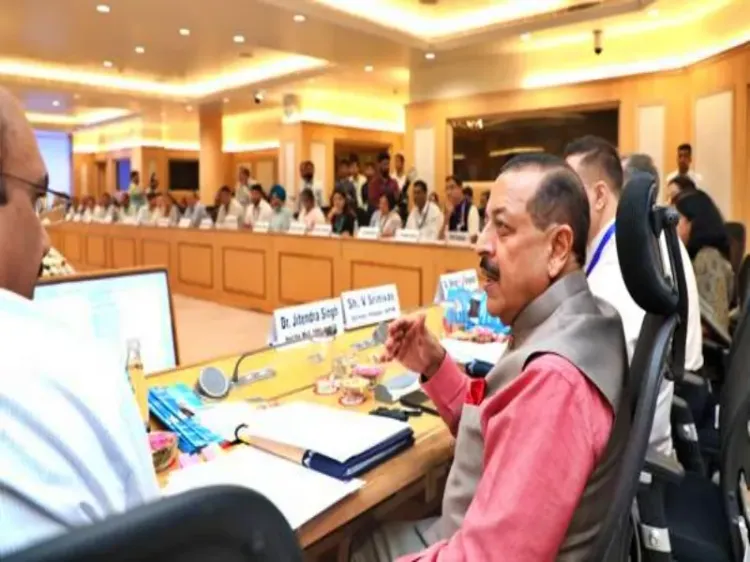What Are the New Central Civil Services Unified Pension Scheme Rules 2025?

Synopsis
Key Takeaways
- New Pension Scheme: Introduction of UPS allows choice for employees.
- Flexible Options: Employees can switch back to NPS under certain conditions.
- Transparency: Clear guidelines on contributions and benefits.
- Wider Awareness: Extensive outreach efforts planned by the Department.
- Family Protection: Benefits available for families upon unforeseen events.
New Delhi, Sep 10 (NationPress) The Union Minister of State for Personnel, Public Grievances and Pensions, Jitendra Singh, announced the release of the Central Civil Services (Implementation of the Unified Pension Scheme under the National Pension Scheme) Rules, 2025 on Wednesday. This new legislation allows Central government employees to make a choice between the National Pension System (NPS) and the newly launched Unified Pension Scheme (UPS).
In conjunction with the announcement of the new rules, Jitendra Singh also presented a brief film addressing frequently asked questions regarding the UPS, aimed at shedding light on crucial elements of the scheme for employees and pensioners.
The Minister emphasized that this notification represents a significant advancement in providing Central government staff with enhanced flexibility, mentioning that employees will have a two-week period to decide between NPS and UPS.
To promote widespread awareness, the Department of Pension and Pensioners’ Welfare (DoPPW) has initiated a comprehensive outreach campaign.
This initiative includes social media promotions, content on the Department’s official YouTube channel, and both online and offline workshops across various ministries and departments.
“I believe this scheme will garner interest from all stakeholders,” Dr. Jitendra Singh stated to reporters following the event.
As per officials, the Central Civil Services (Implementation of UPS under NPS) Rules, 2025 — notified on September 2 — address a broad spectrum of topics.
For employees enrolling in UPS, the rules provide clear guidance on how they can register and make their choice. Importantly, those who later wish to revert are not permanently bound—they can switch back to NPS one year before retirement or three months prior to opting for voluntary retirement.
The rules also clarify how contributions will function under UPS, from both employees and the government, ensuring that deductions and matching contributions remain transparent. If there is any delay by the authorities in registering an employee under UPS or in timely crediting their contributions, the employee will receive compensation—ensuring no loss due to administrative delays.
Another crucial provision is the protection for employees and their families in unforeseen circumstances. Should a government servant pass away while in service or become disabled, the family will have the option to claim benefits either under the traditional Central Civil Services (CCS) (Pension) Rules or under UPS regulations, depending on which is more advantageous.
The rules also detail the benefits payable in various retirement scenarios—whether normal retirement, voluntary retirement, premature retirement, retirement due to health issues, resignation, or even absorption into a PSU or autonomous body. Each of these situations has been thoroughly addressed to eliminate any uncertainty regarding entitlements.
Officials stated that the notification of these rules establishes a clear framework for the implementation of UPS and will assist employees in making an informed decision between the two pension systems.






